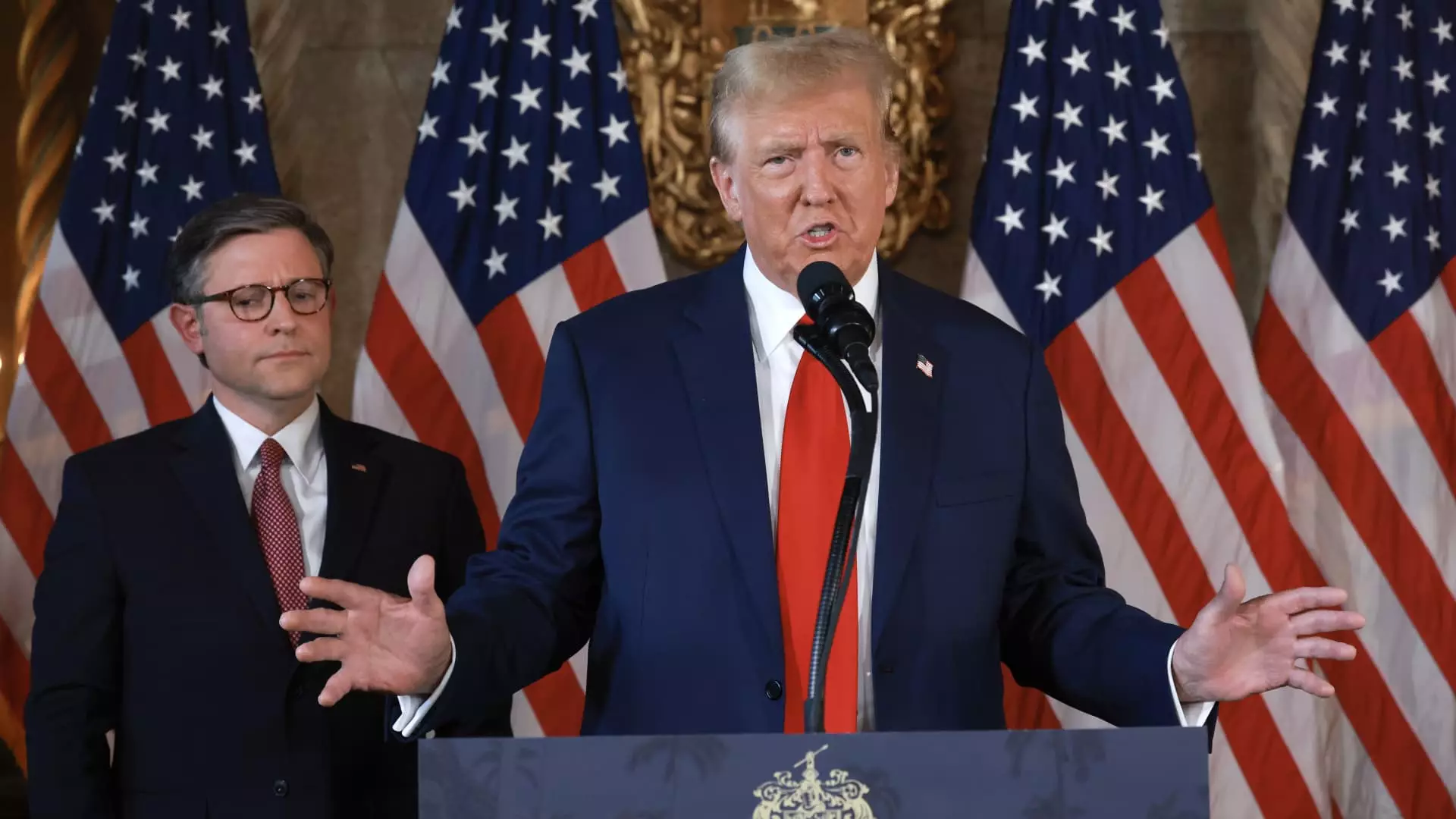Former President Donald Trump and House Speaker Mike Johnson have recently proposed new legislation aimed at cracking down on noncitizen voting. They claim that this practice is a serious issue that needs to be addressed through stricter laws and regulations. However, it is important to critically analyze their proposal and consider whether it is based on evidence and facts.
The legislation proposed by Trump and Johnson seeks to require documentary proof of citizenship to register to vote. While the idea of ensuring that only U.S. citizens vote in U.S. elections may sound reasonable, it is crucial to note that noncitizen voting is already illegal in both state and federal elections. The proposal seems to be based on the false premise that there is a significant number of noncitizens registering to vote.
Despite claims made by Trump and Johnson, there is little evidence to suggest that noncitizen voting is a widespread issue. In fact, investigations into noncitizen voting have found very few cases of suspected noncitizen votes. For example, the Brennan Center found only 30 suspected noncitizen votes out of 23.5 million votes cast in 2016. This suggests that noncitizen voting constitutes an extremely small percentage of overall votes.
The proposed legislation to require documentary proof of citizenship could have far-reaching consequences. While the intention may be to prevent noncitizen voting, it could also disenfranchise millions of Americans who do not have access to passports or birth certificates. This raises concerns about the potential impact of the legislation on eligible voters who may struggle to meet the new requirements.
It is important to note that both Trump and Johnson have a history of promoting baseless claims about election integrity. Trump, in particular, has made unsubstantiated claims about voter fraud and noncitizen voting, despite a lack of evidence to support these claims. Johnson has also promoted conspiracy theories about the 2020 election, further undermining the credibility of the proposed legislation.
When considering legislation on noncitizen voting, it is essential to prioritize evidence-based policies that are grounded in facts rather than political rhetoric. Claims about widespread noncitizen voting should be backed by empirical data and research to justify the need for new legislation. Without sufficient evidence, proposed laws may unnecessarily restrict voting rights and disproportionately impact certain communities.
The proposed legislation by Trump and Johnson to crack down on noncitizen voting raises important questions about the need for evidence-based policies. While the intention to protect the integrity of elections is commendable, it is essential to critically evaluate the evidence and assess the potential consequences of such legislation. Moving forward, policymakers should prioritize fact-based approaches to address issues related to voting rights and election integrity.

Leave a Reply